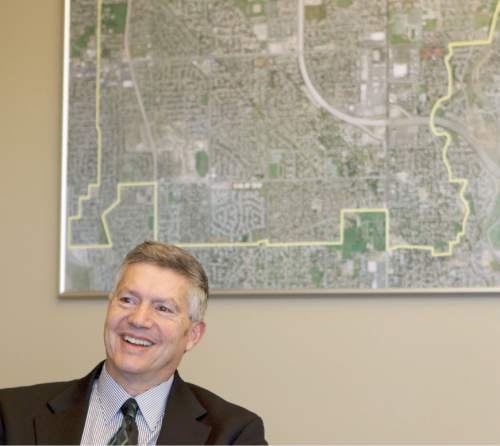This is an archived article that was published on sltrib.com in 2016, and information in the article may be outdated. It is provided only for personal research purposes and may not be reprinted.
The potential Project Discus data center has generated much interest and discussion on the proper use of incentives by the state and local entities and the importance of attracting major industries in the great state of Utah.
As anyone who has driven along the Wasatch Front can tell you, businesses are drawn to Utah. Utah's Silicon Slopes is a beacon for high-tech, high paying jobs. This is in part due to similar incentives given to Google, Adobe and eBay in order to encourage them to locate here. As these businesses move here, related businesses have also located in Utah simply to have a site next to these influential businesses and enjoy the myriad benefits of a strong high-tech economic ecosystem. Attracting a company like Facebook would similarly entice other businesses to come here, sans large tax incentive deals.
Detractors have generated a lot of fear, uncertainty and doubt in their bid to help New Mexico land a business that should be in Utah. Recently, Rep. Joel Briscoe suggested that local school districts need to be protected from deals like Project Discus. What the representative fails to remember is that he voted in favor of Senate Bill 151, Community Development and Renewal Agencies Act Revisions, which passed by an overwhelming majority in the 2016 General Session. SB 151 gives local entities greater control over the incentives they choose to authorize, including school districts.
Further statements from the representative suggest that if an entity does not approve the incentives, then they are castigated. This is incorrect. In the case of Jordan School District, they reviewed the information and found that with this level of incentives the school district will come out far ahead of their current financial situation.
Now, due to SB 151, a city can create an incentive with a business or can, by agreement, do the incentive with one or more taxing entities. Also, taxing entities no longer have the power to force other taxing entities to participate in tax incentives. The only exception to this is when the agency wants to make a finding of blight and wishes to use eminent domain. Then the taxing entity committee is formed to verify blight and the limited need for eminent domain.
As a legislature, we spent a year studying this issue and invited all stakeholders to come to the table to help us find the best way to re-write the redevelopment section of code. The outcome, SB 151, offered a win-win for all taxing entities, taxpayers and Utah's economic development.
Local government is empowered. Local schools are protected. Citizens benefit.
We welcome quality businesses like Facebook to the state of Utah and commend our economic development partners for attracting high quality employers to Utah. These businesses enhance the work opportunities, economic success, and lifestyle of families in Utah.
Sen. Wayne Harper, R-Taylorsville, chairs the Infrastructure and General Government Appropriations Subcommittee, sits on the Senate Revenue and Taxation Committee and sponsored SB 151.



